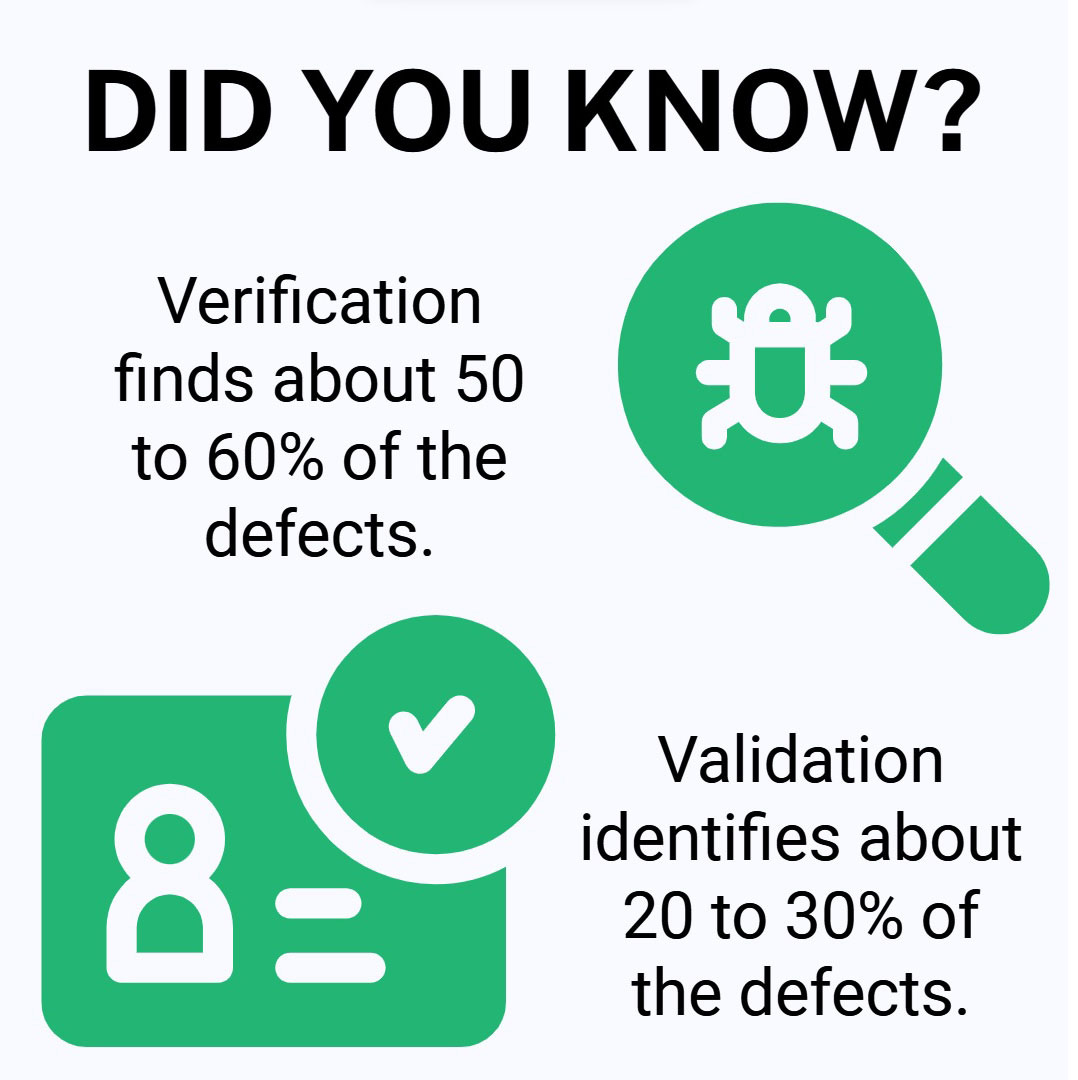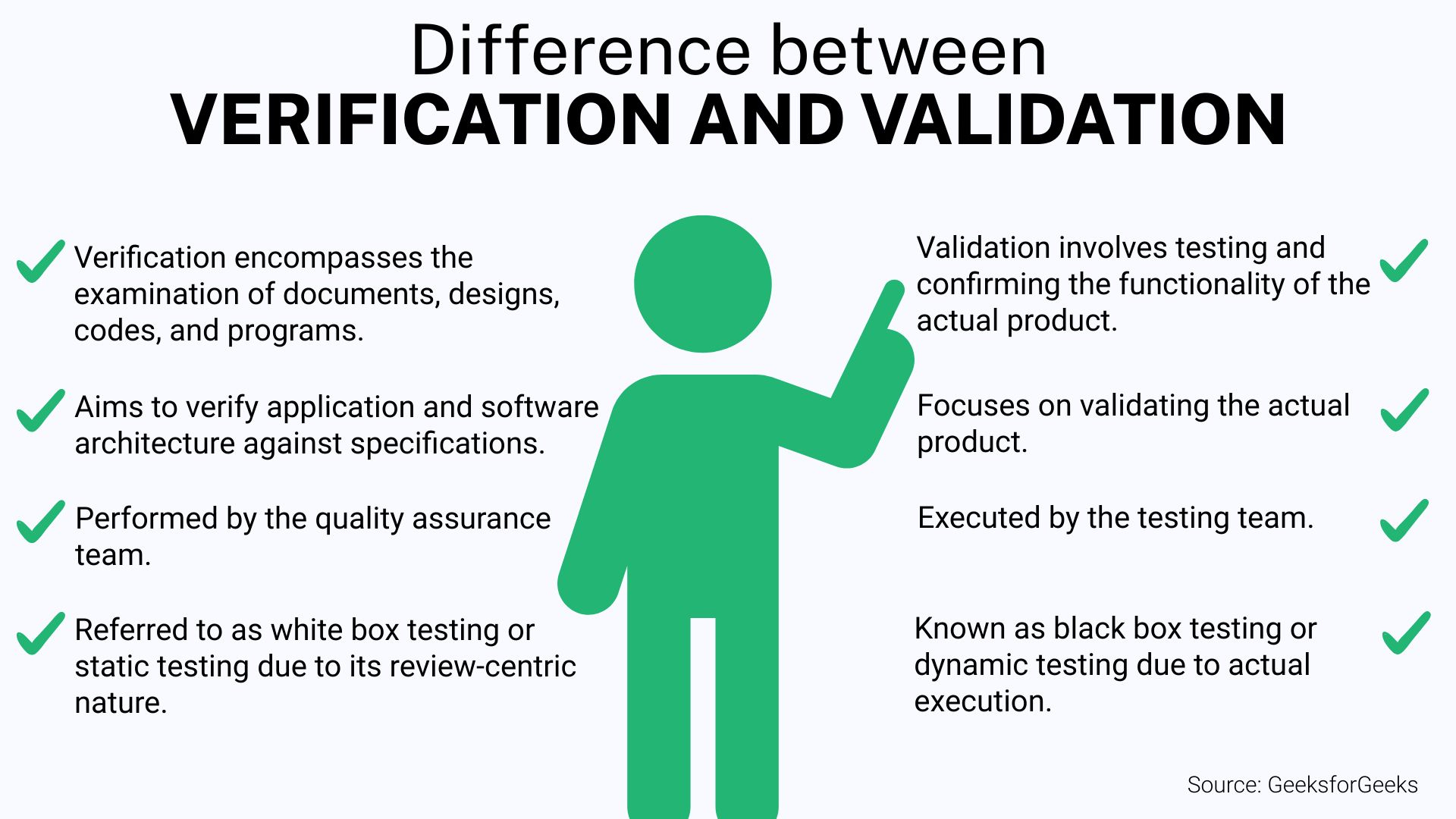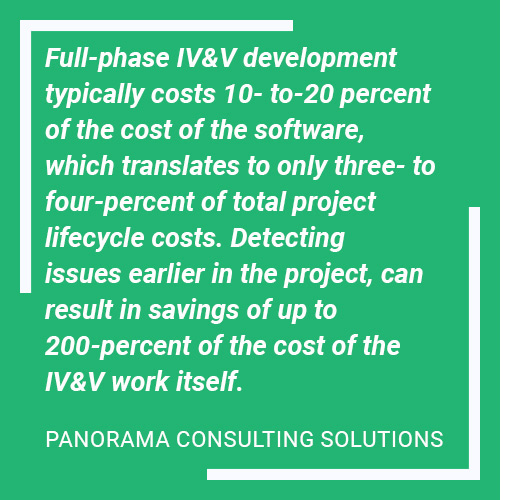
Do your projects resemble intricate puzzles waiting to be resolved? Remember, success demands more than just a stroke of luck. Imagine this: you are an architect designing a cutting-edge skyscraper. Before it reaches the sky, you would call in experts to inspect every beam and column. That is precisely what IV&V, or independent verification and validation, does for IT projects: a thorough examination before your digital vision becomes reality. But how does IV&V save your potentially troubled IT projects? In this article, let us explore the importance of independent verification and validation process, implementation strategies, and valuable lessons that can be learned from its application.
Top Reasons for Project Failure
Before delving deeper into independent verification and validation, it is imperative to understand the top reasons behind project failures. Project failures can stem from a variety of factors, including exceeding budgets or having vague objectives. Occasionally, project leaders might even opt to discontinue a project if it seems unproductive and financially draining. Project failure is a costly setback that can lead to financial losses, damaged reputations, and wasted resources.

According to IAG Consulting’s "The Impact of Business Requirements on the Success of Technology Projects" report, inadequate requirements gathering has a significant impact on the success of technology projects, leading to a waste of over 41% of the IT development budget allocated for software, personnel, and external professional services. In simpler terms, this implies that most project implementations will not succeed, resulting in costs exceeding 150% of the initial budget and timeframes stretching to nearly twice the original estimates.
Complex IT projects are particularly susceptible to failure due to the intricate nature of technology and the critical role they play in various industries. Could independent verification and validation process, with its unbiased evaluation and rigorous testing, protect your projects against these lurking dangers?
Importance of Independent Verification and Validation
Consider an example of a healthcare application that handles sensitive patient data. If this system fails to perform adequately, it can have serious consequences. Therefore, such complicated projects require meticulous testing and validation to ensure they function as intended and adhere to stringent regulations. When your project teams are consistently immersed in their work, maintaining a fresh perspective is undoubtedly challenging. Consequently, they might unintentionally neglect significant as well as minor issues.
Independent verification and validation assessments detect any problems or inconsistencies that could be present in your project. ‘Independent’ here implies the impartial evaluation of a project's alignment with project execution plans and adherence to business requirements by different teams.
Just like predictive intelligence solutions, IV&V foretells project problems in advance by systematically assessing the project's development processes, documentation, and outputs. Additionally, by comparing project progress to established benchmarks and industry best practices, independent verification and validation assessment helps anticipate issues, mitigate risks, and ensure the project stays on track, minimizing the likelihood of significant problems arising later in development. Isn’t it amazing?
Key Elements of Independent Verification and Validation
There is no one-size-fits-all approach to IV&V assessments. However, the concept of independent verification and validation is often summarized by two fundamental questions: "Is the correct product being developed?" and "Is the product being developed correctly?" These assessments and corresponding recommendations offer management and the project teams practical guidance based on industry standards and optimal approaches.
What elements should your independent verification and validation assessments encompass?

Requirements Validation
Ensure that the software and interface requirements match up with the overall system requirements. This is all about clarity, completeness, reliability, and making sure everything is testable and easy to track. This alignment should be devoid of ambiguity and offer completeness.
Verification of the Software Test Plan and Software Test Description
This phase focuses on creating and examining tables to verify how different project elements connect.
Implementation Authentication
This facet ensures the translation of design into the implementation phase. It verifies adherence to established standards and practices for coding, documentation, nomenclature, data dictionary terminology, and the accuracy and completeness of algorithms.
Application Validation
This is where you assess your project’s adherence to software test plans and software test descriptions. The assessment uncovers perceived weaknesses, unresolved issues from the past, and stress tests that could potentially lead to system crashes.
Process Endorsement
This stage verifies the utilization of client standards and industry best practices throughout product development or project execution.
With a series of technical, managerial, and financial evaluations carried out by external resources, the independent verification and validation process offers management teams an evaluation of ongoing project health.
Putting Independent Verification and Validation Into Action

It is time to get practical. Implementing an independent verification and validation process in projects requires careful planning and execution. Your structured approach must involve defining the scope of IV&V, establishing success criteria, and selecting an independent team or entity to conduct the assessment. Just like predictive intelligence solutions, the independent verification and validation team then evaluates project documentation, conducts interviews, and performs thorough testing to identify potential gaps and issues. The insights gained from this process allow organizations to make informed decisions, mitigate risks, and enhance project quality. IV&V can be especially valuable during critical project milestones and phases to ensure alignment with objectives.
Also, as a project leader, contemplate initiating the independent verification and validation process right from the project planning phase. This approach enables the IV&V team to offer an impartial perspective on project planning, scheduling, budgeting, and resource allocation. The early integration of independent verification and validation processes has the added advantage of preventing budget overruns and schedule delays. It achieves this through both proactive and corrective measures to address identified risks, gaps, and issues during the initial stages of the project life cycle. The result? Enhanced developer efficiency and customer satisfaction.
What’s the Way to Move Ahead?
As you step into your next IT venture, remember the incredible capability of independent verification and validation. This essential process protects your goals, safeguards your resources, and makes sure your digital dreams turn into successful realities. Project success is no accident but a well-planned journey. So, how can you enhance your IV&V processes? Leverage a comprehensive project solution that predicts potential project problems early and ensures project success.
That is where TrueProject, a predictive intelligence solution for improving project health and performance, comes in. By integrating project data and offering customizable dashboards, TrueProject provides an accurate and flexible project overview, making it a valuable tool for your independent verification and validation efforts. Additionally, TrueProject's data integration and insightful analytics enable a clear view of project health and performance, facilitating proactive decision-making and optimal project delivery, which are crucial aspects of IV&V. Also, with TrueProject, the need for a separate team to evaluate your project process becomes obsolete.
IV&V is an extra layer of protection for your projects. Therefore, the decision to implement independent verification and validation assessment should be based on a careful assessment of the project's characteristics, requirements, and potential risks.
More information on TrueProject can be found at www.trueprojectinsight.com.
 About the Author
About the Author
Brian Eckert is the Director of Engineering for TrueProject. Brian has 30+ years of experience in software development and process. He specializes in Requirements Analysis, Software Project Management, and SDLC.
Endnotes:
- “The Importance of Independent Verification & Validation.” Panorama Consulting Solutions, 2015. https://www.panorama-consulting.com/wp-content/uploads/2022/08/Independent-Validation-Verification.pdf
- “Importance of Independent Verification and Validation (IV&V) and Automated Testing for Complex IT Health Solutions.” i-Link Solutions, (n.d.). https://www.ilinksolutions.com/importance-of-independent-verification-and-validation-ivv-and-automated-testing-for-complex-it-health-solutions/#:~:text=IV%26V%20Reduces%20Risk%20and%20Associated%20Rework%20Cost&text=For%20example%2C%20if%20a%20healthcare,before%20sensitive%20data%20gets%20exposed
- Pankaj, PP. “Differences between Verification and Validation.” GeeksforGeeks, March 21, 2023. https://www.geeksforgeeks.org/differences-between-verification-and-validation/
- “Project Risk Management: IV&V as Insurance for Project Success.” Futrend Technology, Inc., (n.d.). https://www.futrend.com/pdf/Project_Risk_Management-Independent_Verification_and_Validation.pdf
- Baumann, Bill. “What is Independent Verification and Validation?” Panorama Consulting Group, July 28, 2022. https://www.panorama-consulting.com/what-is-independent-verification-and-validation/





